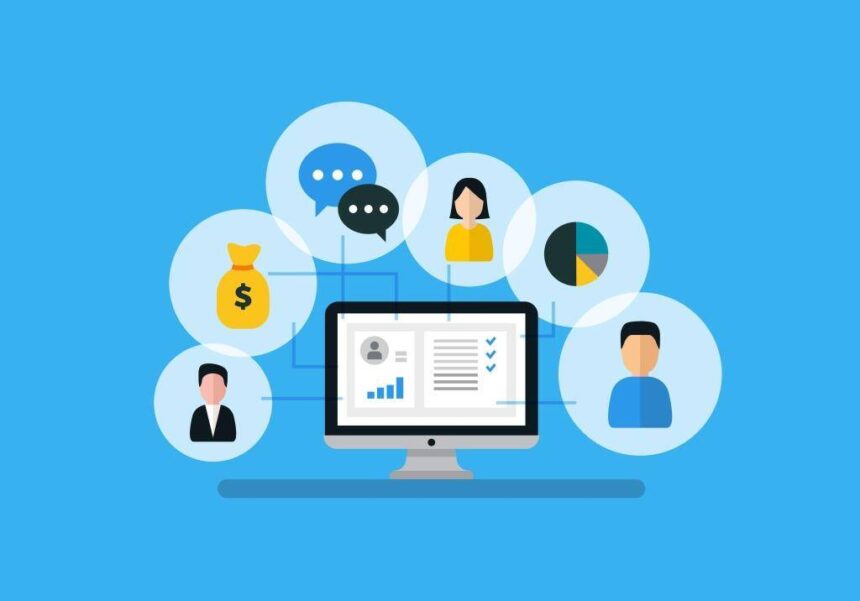Last summer, Dr. Mark van Rijmenam wrote a compelling article about the growing use of big data in customer relationship management (CRM) technology. Rijmenam said that CRMs have evolved as big data helps add new layers of nuance to the technology.
In order to understand the role of big data with this technology, it is important to develop a foundation in big data technology in general.
The Core of Big Data Technology and its Versatility in Business
Big data brings a brand-new strategy to the customer relationship management platform that allows for new customization and personalization features for customer related services, and sales. In fact, service customization and personalization of the customer experience are necessities that make CRM dependent on big data.
Generally, big data refers to a variety of unstructured and structured data that is can be measured in high volumes, has high level of accuracy, is rapidly acquired and is valuable to the business. CRM software can be integrated with big data to provide a more intuitive capture and analysis of customer data. This type of data requires better CRM software techniques and tools to capture, store as well as analyze. The result is used by top managers to enhance decision making to improve customer management. Known as the 5Vs model, it emphasizes on five key aspects especially on;
- Volume
- Velocity
- Variety
- Value
- Veracity
CRM and Big Data
Big data generates endless opportunities for business – small, medium and big. However, organizations must be in a position to integrate the right systems to be able to generate comprehensive insights from the huge volumes of data. This is where customer relationship management software comes in. companies can get better insights from how Netflix uses big data.
CRM monitors customer related data from various social and online platforms, collects it and presents it to the company through an interactive user interface in a comprehensible, consistent and rational way.
Is Big Data good for CRM?
There are several reasons that make it necessary for businesses that use big data to integrate them with CRM. This is because it enhances market analysis, predictive modeling, drives growth and revenue and enhances customer understanding. Business News Daily talks about some of the important benefits. We built on their original thesis here.
Market Analysis
With the continued growth in brands trading in similar commodities, companies must specialize in targeted marketing to beat the competition. Companies that integrate big data with CRM can therefore monitor customer trends, use it to predict their needs, and consequently be in a position to develop products and promotional campaigns in line with those demands.
Predictive modeling
CRM future is in predictive modeling which is closely similar to target marketing. With the ever-changing taste and preference of the constantly online present customers, big data CRM makes it easier and better to predict how clients will respond in future. This is usually based on past and present purchasing behavior. CRM software presents these records with recommendations which businesses can use to improve their production volumes.
Drive growth and revenue
Decision making highly impacts a company’s ability to drive revenue. Big data CRM provides precise performance metrics that help sales teams and manager to make well informed decisions. Leads are consequently generated faster and deals closed more rapidly. Customer experience is also enhanced because customer service team get the opportunity to acquire adequate information when attending to customers.
Superior customer understanding
Big data CRM makes it much easier for companies to receive feedback on product perception. CRM technology has improved how the system collects data online on customers’ perceptions on particular products. It then reports these findings to the company. Consequently, the companies use this data to analyze their weak points and adjust their marketing strategies, which consequently enriches customer experience and retention rates.
Is it the future of CRM software?
Research says that big data is destined to be the next disruptive technology with foreseen likelihood to generate far reaching impacts to the CRM industry. The potential to revamp artificial intelligence in CRM system puts big data forward in nurturing higher gear CRM. Look at some of the key reasons why experts believe it will be more logical to combine big data with CRM in future.
1. Improved customer experience
Conjoining historic interactions with provable statistics crosswise over the two platforms will be able to provide real-time centralized perspective of clients. This way, entrepreneurs will be able to work much better with their customers.
2. CRMs become more efficient and cost effective with Hadoop
CRM innovation is largely dependent on some level of hidden social or enterprise information catalogue. However, this innovation is more susceptible to shortcomings such as the difficulties of handling. With the emphasis on parallelism and Schema On Read (SOR), storage costs are highly reduced and preparation of data becomes more effective.
3. Integration with social media
Integration with social media makes advertising cheaper and simpler when the combined platform is used in monitoring web-based tendencies. The propensities can be made customer-based and specific, engaging methodologies deployed.
4. Automation of sales
This is the biggest innovative direction big data takes CRM software. It is predicted that in future, these frameworks will be in a position to differentiate requests, customer and product details, and still be able to appropriate shipments. CRM will be able to pick up large number of requests more meritoriously and will not require any substantial human oversight. When this happens, the time spent on requests will be greatly reduced. A phenomenon that will highly revamp a 24-hour economy, with intelligent units working day and night.
Big Data is Crucial to Modern CRMs
CRMs are more reliant on big data than ever. Big data has increased their range of features and led to new benefits.







